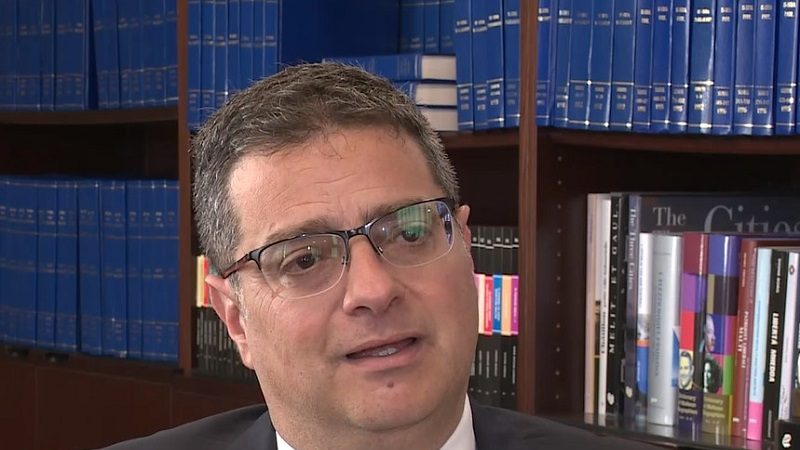PN leader Adrian Delia has repeatedly declared that he is opposed to Article 7 procedures against Malta, which could lead to Malta losing its voting rights, in the wake of a damning report on the rule of law by MEPs.
EU treaties to which Malta is a signatory foresee the use of Article 7.1 to allow the European Council to give a formal warning to any country accused of violating fundamental rights. If that doesn’t have the desired effect, Article 7.2 would impose sanctions and suspend the member country’s voting rights.
Delia is aware that any talk of Article 7 is bound to bolster a patriotic retrenchment, with the PN being dragged in what would be inevitably spun by Labour as an attempt to sabotage the country’s economy.
One major stumbling block for the opposition is that its anti-corruption drive in Europe is perceived by a segment of the electorate as a partisan one aimed at sabotaging government rather than one based on a genuine desire to restore the rule of law in the country.
Had Delia not made his position on Article 7 clear now, he would have dragged the opposition in a minefield. For what can be more precious for the average pale blue voter than EU membership itself which in the pre-referendum days was marketed as an opportunity for Maltese leaders to sit around the same table and having the same voting rights as the big nations of Europe?
Still the end game of MEPs was clear from day one. The only way the EU can address rule of law problems in individual states is through the threat of Article 7 which refers to the union’s fundamental values.
Otherwise the EU has no competence over the internal matters of nation states. The article is also drafted in a way that encourages dialogue between the member states and the commission and thus avoid sanctions.
The prospect of the EU Commission invoking Article 7 with regards to Malta is remote, considering the contrast with the far more serious issues in countries like Poland and Hungary. But it does represent a test for the influence the PN has on the EPP group, especially with MEP elections coming next year.
The PN was already in an uncomfortable position when MEPs extended their concern to Malta’s tax system and came close to declaring Malta as a tax haven. In this case it was the EPP which came to the defense of Malta’s tax system.
Delia is right in saying that it was government’s actions which have thrown the spotlight on Malta but this represents only part of the picture as some of the problems identified by MEPs are structural and predate Muscat’s government.
It was no surprise that Owen Bonnici latched on Delia’s pronouncement on Article 7 to misinterpret this as “consensus between the Prime Minister and the Opposition leader that there is no serious risk of rule of law or the deterioration of European values in Malta.”
In reality this was not the case as evidenced by Delia’s own strong declarations on corruption in the past months.
But Delia has to struggle against the perception that he is softer on this issue than his predecessor, especially in view of his pending tax issues which are being resolved with government. Labour is clearly aiming at creating a wedge between the new PN leadership and a segment of PN voters who want the opposition to be more vociferous in its opposition.
But to win over middle-of-the-road voters the opposition will have to present itself as principled and moderate, two aspirations which can easily lead to contradictions.
Beyond Article 7, the opposition’s problem is mainly a local one, on how to reconcile conflicting demands and interests in its own complex electorate, without sounding unprincipled and opportunistic.
In reality so far the opposition has sent mixed messages.
Only last Thursday while the opposition’s representative on the PA board Ryan Callus voted for a 32-storey tower in Paceville ,the PN mayor of St Julians voted against, and the party’s environmental spokesperson Karol Aquilina tweeted his opposition to high-rise.
Delia’s openings to the conservative wing have also returned to haunt him after Edwin Vassallo voted against a law on domestic violence while citing concerns on abortion.
Delia has one major advantage; that of not being part of the dominant clique which dominated the party in the past 25 years and that of having a popular touch which the party lacked in the past few years.
While he carries his own personal baggage which may return to haunt him, he does not carry the weight of 25 years of PN rule.
Winning trust will be a hard task when confronting a government which offsets its dismal track record on governance – which is perceived by many Maltese as a failure of an entire political system – by delivering on material prosperity .
Beyond Article 7, the PN needs to be seen as a better or reasonable alternative on both fronts to start winning hearts and minds.












